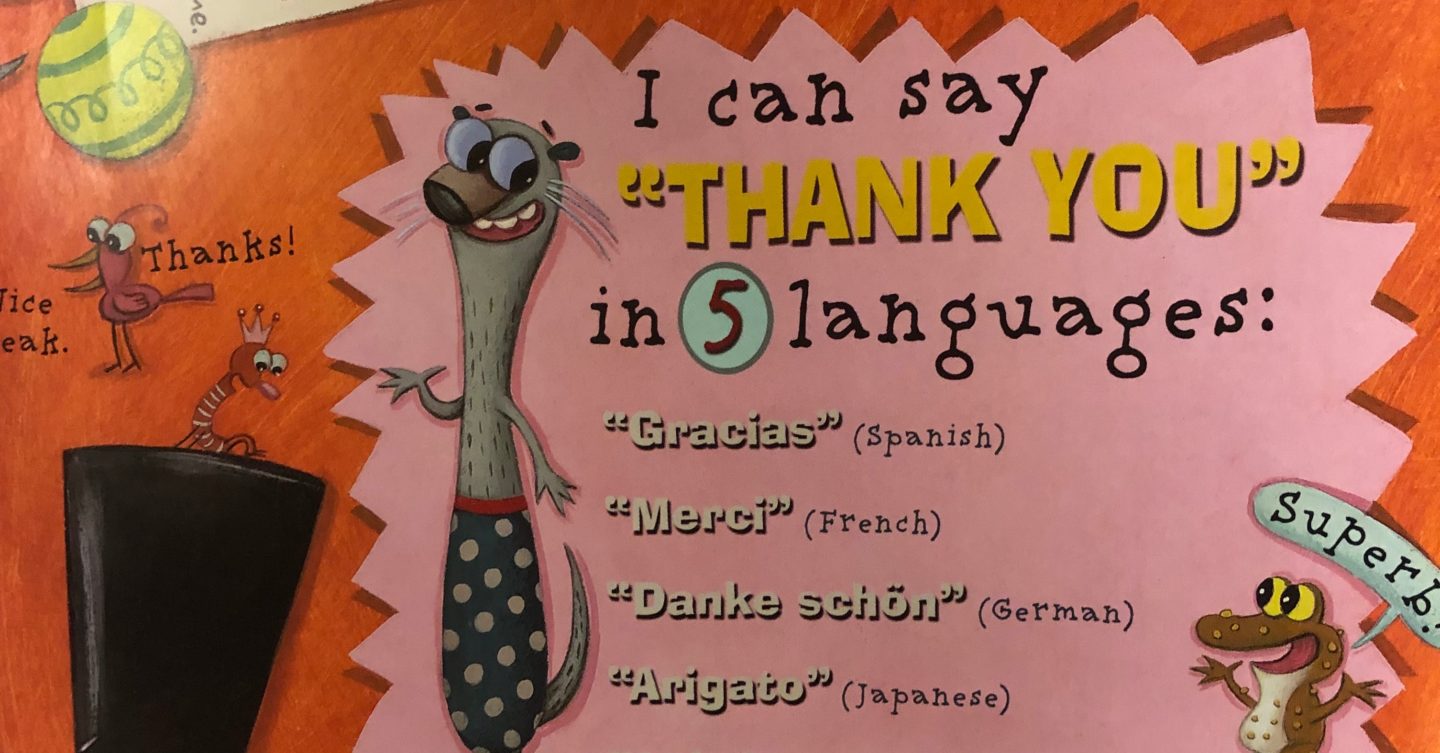
Creating Space for Additional Languages through Read-Alouds
A simple story selection like “Do Unto Otters” by Laurie Keller can create the space for additional languages in your classroom. I don’t make a habit of reading stories in English in my classroom. There are so many beautiful, funny, thoughtful stories in French I could be reading instead; I want my learners to discover them. I don’t want my kids to think the simple or boring stories are in French and the good or meaningful ones are in English. However, I am willing to make an exception for a multilingual story read-aloud early in the year.
I don’t make a habit of reading stories in English in my classroom. There are so many beautiful, funny, thoughtful stories in French I could be reading instead; I want my learners to discover them. However, I am willing to make an exception for a multilingual story read-aloud early in the year.
I like this story because it teaches the golden rule, and it does it in multiple languages. Plus it’s funny. My learners quickly discover that I am open to other languages and that I think they are important based on the way I react as I read this story. Additionally, I share the SENĆOŦEN word using the firstvoices website or this language website (if a translation exists). We talk about the languages of the territory and how important it is to respect them. One way we can show respect is by trying to learn. To learn more about this, I recommend listening to Katia Olsen’s words in her recent interview with CBC for the FirstWords podcast. Then, I encourage the kids to add any other languages they can. This year we added Portuguese and Arabic.
Young multilingual learners are navigating confusing waters at school and in the community. I often hear kids say things like, “You mean like my mom and dad talk?” These types of comments make it so clear to me that our very young learners need to be encouraged to embrace their languages and take ownership over their languages. Yes, that means speak their languages outside of the home. The allure of the majority can be very strong, and we all have within us a need for belonging. I don’t want our learners to think they need to leave their languages at the door in order to belong here.
